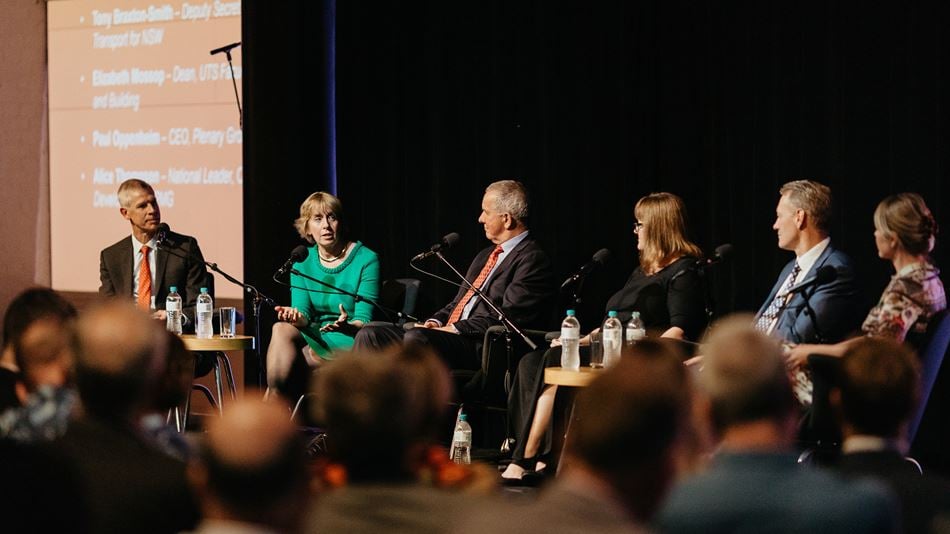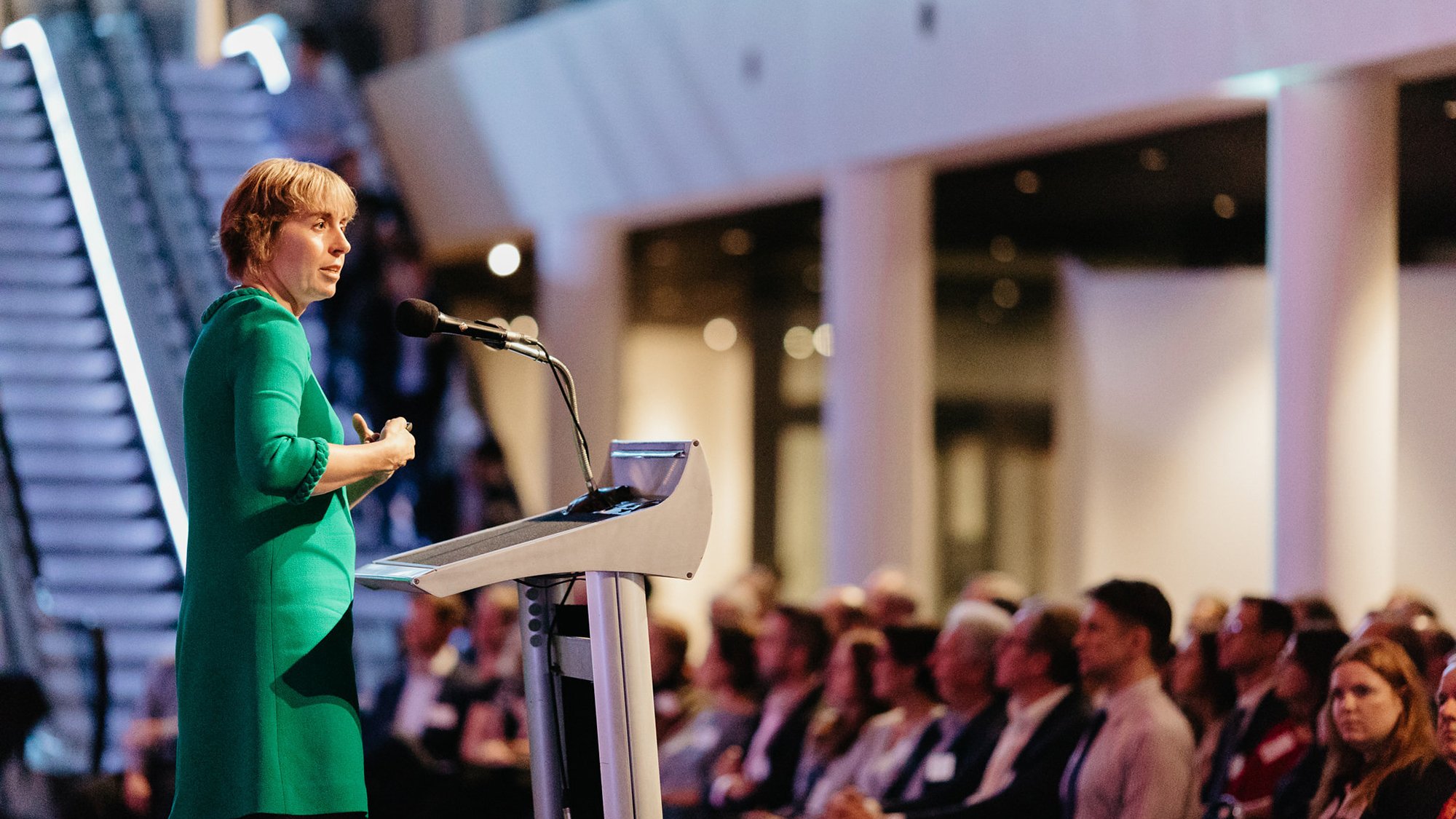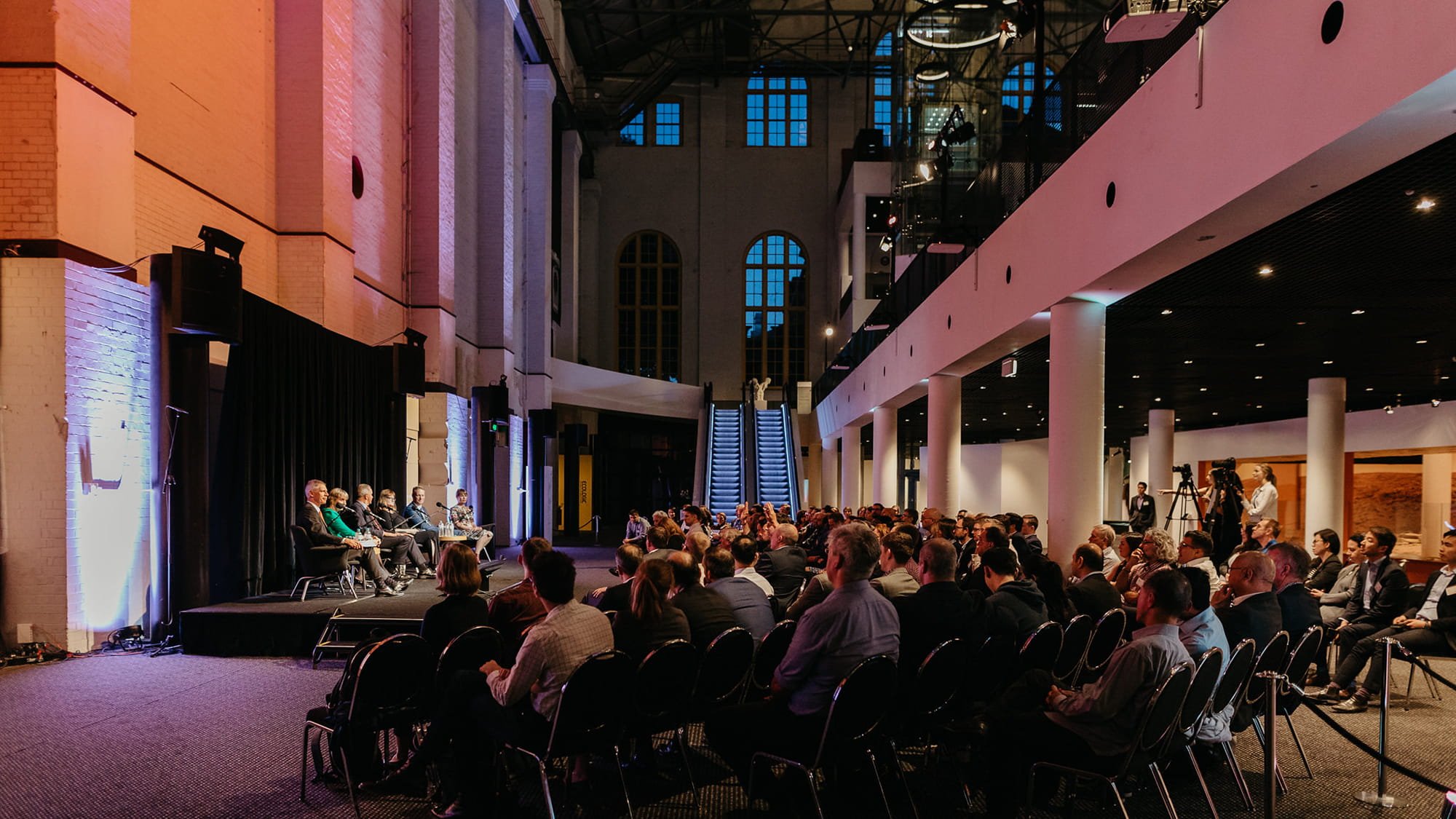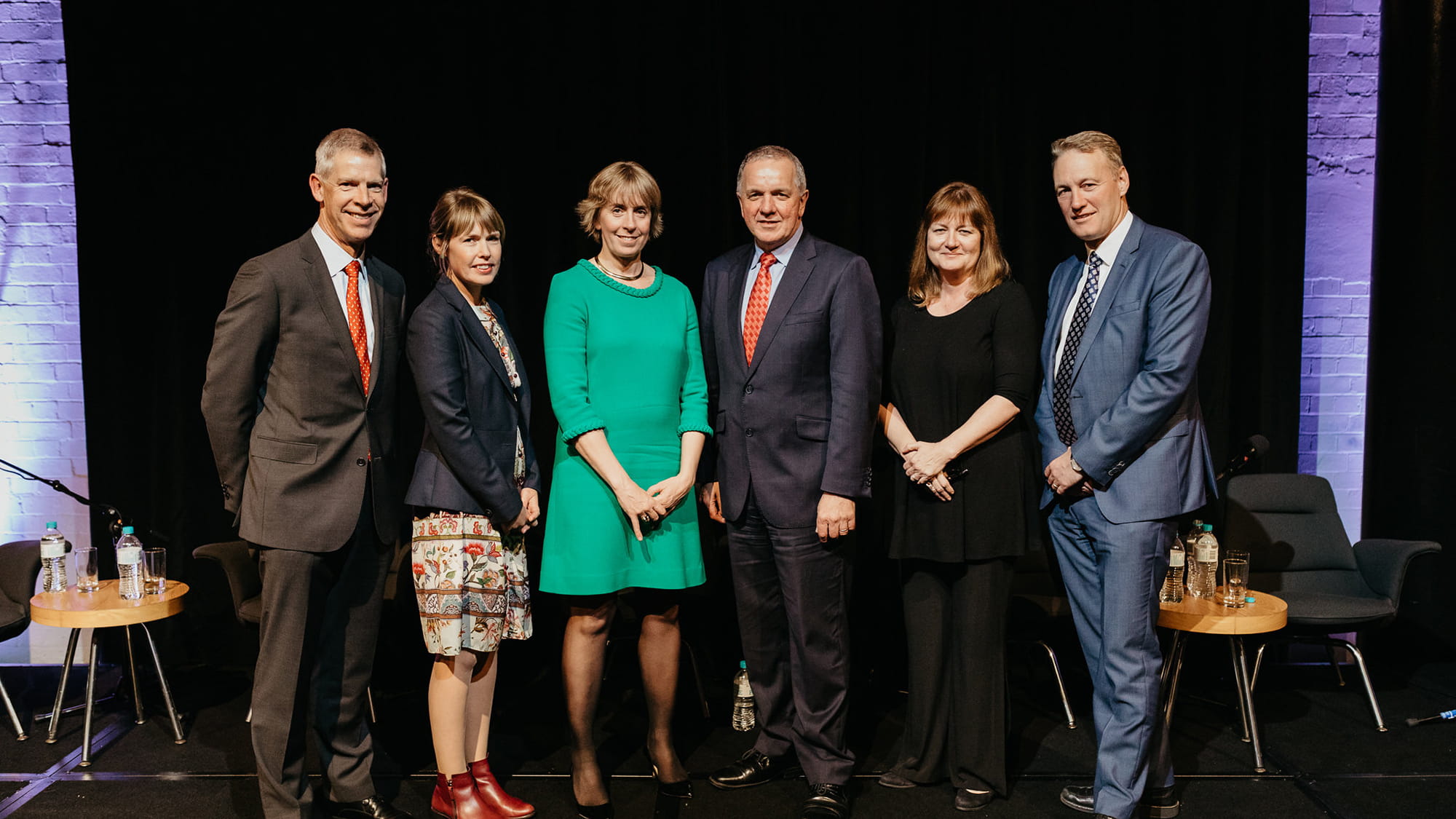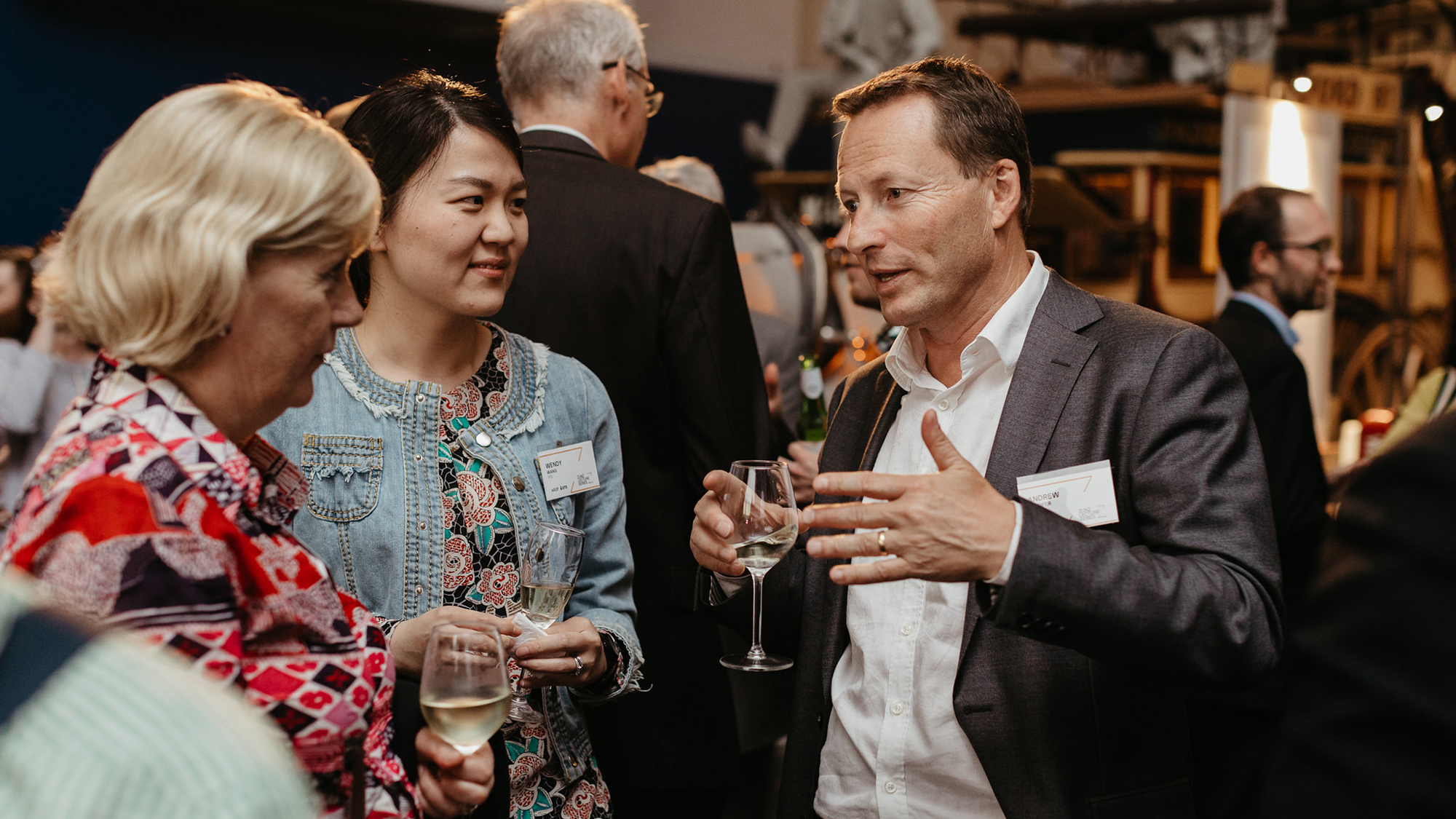On Thursday, 9 November, Arup partnered with UTS to deliver the annual Zunz Lecture at the Museum of Arts and Applied Sciences in Sydney, addressing the theme – City Shaping Transport.
Isabel Dedring, Arup’s Global Transport Leader delivered the keynote presentation and addressed how transport has shaped cities of the past, present and future.


